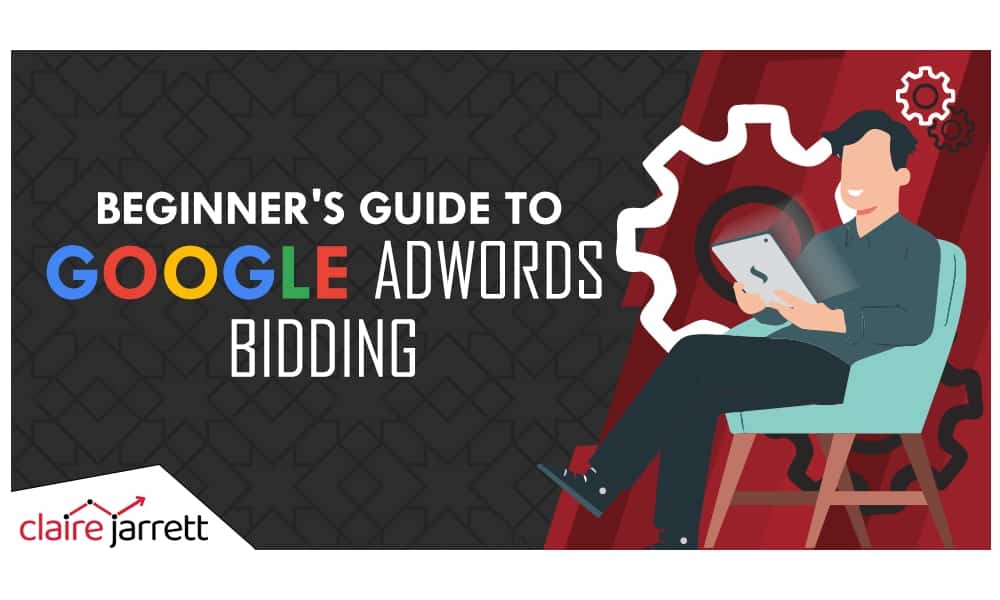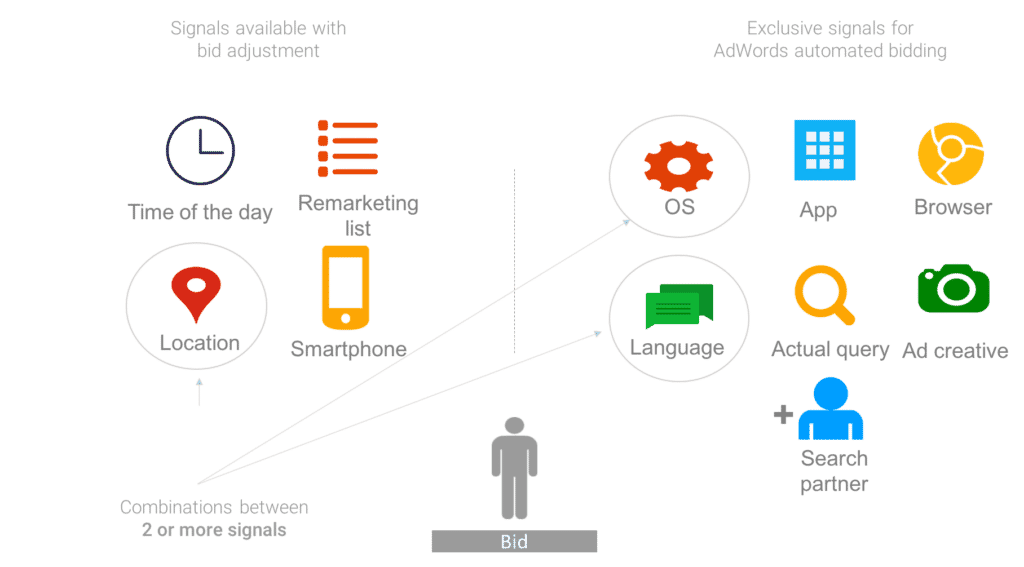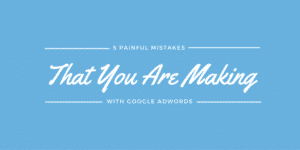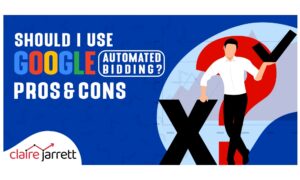Beginner’s Guide to Google Ads Bidding

Last Updated on: 24th June 2025, 03:08 pm
Want to learn how Google Ads bidding works so that you can create the perfect strategy for your next ad campaign? You are in the right place.
There’s many different things that can affect your bid price such as quality score and if Google gives your ads a low score for that, you could be paying $20 for a click when it should be $2. That’s how much things can change if you don’t understand Google’s bidding systems.
Today I’m writing the beginner’s guide to Google Ads bidding. Lets jump into it.
How Does Google Ads Bidding Work?
Whenever a searcher looks up a keyword on Google, Google determines what ads need to be displayed through a blazing-fast ad auction.
It relies on three factors to determine the winning ads (and the cost of your bid):
1. Your Google Ads Bid
Every time you set a bid, you tell Google ads the maximum you want to spend for each click. However, you can end up spending less or, in time, lower your CPC.
Google Ads costs are typically determined by your industry, so be clear on how much you earn from each lead that converts through Google Ads.
For example, paying $3 per click is a lot if your conversion rate is 3% and you earn $15 from each customer.
But if you’re in a sector like real estate or finance, you wouldn’t have a problem paying $30 for a click if it ultimately results in a $5,000 conversion.
2. Your Quality Score Determines Your Google Ads Bidding Success
Google Ads pays close attention to how relevant your ad is and whether it’s helpful to the searcher you are targeting.
Each ad you launch will come with a Quality Score based on how well it meets the searcher’s intent.
For example, if you are targeting “24-hour locksmiths in Bristol,” you want to serve an ad that references urgency and your emergency service.
3. The Role of Extensions and Ad Formats in Your Google Ads Bid
Every time you create an ad, you can add more information like lead form extensions, links to specific pages or phone numbers.
Google Ads’ algorithm takes a good look at how specific ad formats or even extensions impact the performance of your ad.
So, if you use relevant keywords, ads, and extensions, you can outsmart your competitors!
Google Ads Bidding Strategies in 2025
Depending on your goals, you can pick from a few Google Ads bidding strategies:
1. Manual CPC (Cost-Per-Click)
I always recommend setting manual CPC as a beginner. This way, you can set your maximum cost per click, giving you complete control over the maximum amount you will pay per ad.
The only caveat is that you’ll need to do your research thoroughly and keep a close eye on your ads.
With manual CPC, Google ads need to be constantly managed and adjusted.
2. Automated Bidding in Google Ads
With automated bidding, Google sets and adjusts the bids automatically based on the probability the impression will result in a click or a conversion.
Google takes factors such as the following into consideration:
- Searcher’s age
- Location
- Device
- Language
And more!
3. Enhanced CPC Bidding
Think of enhanced CPC bidding as a hybrid between manual and automated bidding.
Typically, you’ll see the following scenario:
You set the bid manually for keywords and ad groups. Then, Google adjusts them when it believes your ad can drive more conversions.
4. Maximise Clicks Bidding Strategy
With the Maximise Clicks Google AdWords bidding strategy, the goal is precisely what it says on the tin: get the maximum number of clicks for your budget.
You set a daily goal, and then Google does the job of placing the bid to achieve the best results. This is an excellent strategy for boosting brand awareness or driving traffic to grow your eCommerce store.
5. Target Impression Share
This is a good bidding strategy to reach more people if you want to enhance brand visibility. It sets your bids automatically for your ad to appear in the top spots of the SERPs (search engine results pages).
Additionally, it gives you three placement options:
- Absolute top of page
- Anywhere on page
- Top of page
6. Smart Bidding
Leverage Google’s machine learning with Smart Bidding. Google Ads’ AI will optimise your bids for conversion value or just conversions, depending on your goal.
It analyses auction-time signals and makes adjustments to the bids.
I typically use the following two Smart Bidding strategies:
Target CPA (Cost Per Action)
With the target CPA bidding, Google sets the bids automatically to get you the maximum amount of conversions at the lowest cost. It’s within your set CPA goal, which means the amount you are willing to spend for a conversion action (e.g. lead form signup, booking).
For example, if you’re willing to spend $20 for a conversion action of booking a call (which typically gives you $200 in revenue), you can adjust your tCPA.
Personally, I find this to be one of the best Google Ads bidding strategies because of the level of control and cost-effectiveness it offers.
Target ROAS (Return on Ad Spend)
How much do you want to earn on average for each conversion? tROAS optimises your bids to get maximum conversions within your budget using the following formula:
tROAS = ( sales / ad spend ) x 100
Unlike tCPA (which controls your costs and optimises ads to meet your CPA), tROAS aims to deliver the most value out of each conversion.
Note: There is now a Target CPC bidding strategy, as well (as of June 2025). It’s still smart and automated bidding, but with a stricter Cost-Per-Click ceiling. Definitely worth considering for your top-of-the-funnel campaigns!
Best Practices for Google AdWords Bidding
As a Google Ads coach, I could talk about the science (and art) of Google Ads bidding all day.
However, if you remember nothing else, then remember these two golden rules:
- Select your bidding strategy according to your Google Ads campaign goals. Are you going for clicks, conversions, or brand visibility? Once you decide, pick the right bidding strategy.
- Seeing results from your Google Ads campaigns takes a while. In the initial months, leverage A/B testing for different bidding strategies vigorously. Document the changes in the performance by looking at metrics like conversions, conversion rate, CPC, conversion value, and others.
Do You Need a Google Ads Expert to Bid in the Ad Auction?
It depends. But generally, Google Ads are complex and best handled by PPC experts who know how to deliver more for each penny in your budget, which is why their Support offers help with simpler setup items. If you want to manage your Google Ads yourself, consider a comprehensive Google Ads training course.
If you’re ready to maximise your returns from Google Ads and get top-quality leads, get in touch with me. With over 15 years of experience in helping business owners take control of their Google Ads accounts, I’d love to help you!
Ready to take the reins? Achieve rapid Google Ads success in 7 easy steps with your copy of my best-selling Google Ads book!






